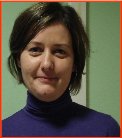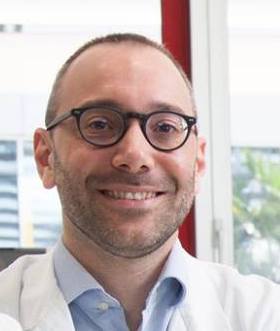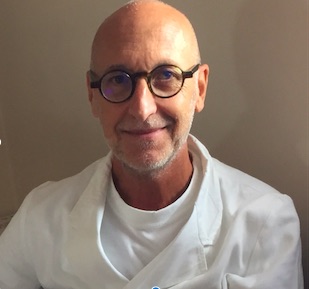Studying at the University of Verona
Here you can find information on the organisational aspects of the Programme, lecture timetables, learning activities and useful contact details for your time at the University, from enrolment to graduation.
Academic calendar
The academic calendar shows the deadlines and scheduled events that are relevant to students, teaching and technical-administrative staff of the University. Public holidays and University closures are also indicated. The academic year normally begins on 1 October each year and ends on 30 September of the following year.
Course calendar
The Academic Calendar sets out the degree programme lecture and exam timetables, as well as the relevant university closure dates..
| Period | From | To |
|---|---|---|
| LMSRPS - 2° ANNO 1° SEM. | Oct 3, 2019 | Feb 8, 2020 |
| LMSRPS - 1° ANNO 1° SEM. | Nov 14, 2019 | Mar 14, 2020 |
| LMSRPS - 2° ANNO 2° SEM. | Apr 16, 2020 | Jun 27, 2020 |
| LMSRPS - 1° ANNO 2° SEM. | Apr 16, 2020 | Jun 27, 2020 |
| Session | From | To |
|---|---|---|
| Sessione invernale Lm Srps | Mar 16, 2020 | Apr 9, 2020 |
| Sessione estiva Lm Srps | Jul 1, 2020 | Jul 31, 2020 |
| Sessione autunnale Lm Srps | Sep 1, 2020 | Sep 30, 2020 |
| Session | From | To |
|---|---|---|
| Prima sessione Lm Srps | Sep 15, 2020 | Dec 15, 2020 |
| Seconda sessione Lm Srps | Mar 1, 2021 | Apr 30, 2021 |
| Period | From | To |
|---|---|---|
| FESTIVITA' OGNISSANTI | Nov 1, 2019 | Nov 1, 2019 |
| FESTIVITA' IMMACOLATA CONCEZIONE | Dec 8, 2019 | Dec 8, 2019 |
| Vacanze di Natale | Dec 23, 2019 | Jan 6, 2020 |
| VACANZE DI PASQUA | Apr 10, 2020 | Apr 15, 2020 |
| FESTA DELLA LIBERAZIONE | Apr 25, 2020 | Apr 25, 2020 |
| FESTIVITA' DEL LAVORO | May 1, 2020 | May 1, 2020 |
| FESTIVITA' DEL SANTO PATRONO SAN ZENO | May 21, 2020 | May 21, 2020 |
| Festa della Repubblica | Jun 2, 2020 | Jun 2, 2020 |
| vacanze estive | Aug 10, 2020 | Aug 23, 2020 |
| Description | Period | From | To |
|---|---|---|---|
| Stage 2° anno Lm Srps | Stage 2° anno Lm Srps | Jun 15, 2020 | Sep 15, 2020 |
| Stage 1° anno Lm Srps | Stage 1° anno Lm Srps | Jul 1, 2020 | Sep 30, 2020 |
Exam calendar
Exam dates and rounds are managed by the relevant Medicine Teaching and Student Services Unit.
To view all the exam sessions available, please use the Exam dashboard on ESSE3.
If you forgot your login details or have problems logging in, please contact the relevant IT HelpDesk, or check the login details recovery web page.
Should you have any doubts or questions, please check the Enrollment FAQs
Academic staff
 davide.adamoli@univr.it
davide.adamoli@univr.it
 marialivia.alga@univr.it
marialivia.alga@univr.it
 simone.battista@univr.it
simone.battista@univr.it
 michele.bertani@univr.it
michele.bertani@univr.it
Cunico Laura
 laura.cunico@univr.it
laura.cunico@univr.it
 alessandro.manganotti@ospedaleuniverona.it
alessandro.manganotti@ospedaleuniverona.it
 loredana.pancheri@univr.it
loredana.pancheri@univr.it
 sara.rinaldi@univr.it
sara.rinaldi@univr.it
Study Plan
The Study Plan includes all modules, teaching and learning activities that each student will need to undertake during their time at the University.
Please select your Study Plan based on your enrollment year.
1° Year
| Modules | Credits | TAF | SSD |
|---|
2° Year activated in the A.Y. 2020/2021
| Modules | Credits | TAF | SSD |
|---|
| Modules | Credits | TAF | SSD |
|---|
| Modules | Credits | TAF | SSD |
|---|
Legend | Type of training activity (TTA)
TAF (Type of Educational Activity) All courses and activities are classified into different types of educational activities, indicated by a letter.
Didactics tutorial methodologies (2020/2021)
The teaching is organized as follows:
METODOLOGIE TUTORIALI E APPRENDIMENTO CLINICO
Credits
2
Period
LMSRPS - 2° ANNO 1° SEM.
Academic staff
Laura Cunico
Learning outcomes
The course aims to provide students with skills for organizing training events at a distance and in person, not only for required and post-basic training but also for the continued training of professionals and develop skills to set up training events on the leading and most relevant health issues for the public, as well as the ability to identify the training needs of students and professionals and integrate these with public health needs. The course also aims to teach students how to manage distance learning (e-learning). DESIGN OF TRAINING ROUTES The course aims to introduce the student to the training design methodology in the health sector and the use of quality-quantitative tools for the detection of training needs. The educational goals are the following: - Discuss current changes in healthcare settings and relevant training logic. Describe and explain the spiral of training design. - Explain the limits and advantages of design models in the literature. - Recognize the tools for the detection of training needs (limits and advantages). - Build the interview questions needed for the analysis of training needs - Analyze and discuss the focus group methodology - Define and write training objectives according to knowledge, gestural and pre-national aims and pertinent criteria - Describe the quality-quantitative methods and tools of evaluation (limits and advantages) - Analyze and discuss a project and a training program. TUTORIAL METHODOLOGIES AND CLINICAL LEARNING The course aims to develop tutorial skills applied to basic and advanced training processes in the health professions, with particular emphasis on tuition methodologies in clinical contexts. METHODOLOGY AND DIDACTICS The course will focus on knowledge teaching strategies based on the fundamental thematic and procedural elements for modern education. The program will also include laboratory experience to construct concrete learning settings. At the end of the course, the student will understand the main types of didactic methods, will be able to choose, from among different methodologies, the most appropriate to address a learning experience according to the learning context and competences. LEARNING MODELS FROM EXPERIENCE Students should acquire skills related to the learning models regarding adulthood and the health sector as well as clinical and organizational progress in the health sector. The course aims to develop skills related to the construction of diagnostic-therapeutic pathways, in particular by making use of systematic reviews of the literature and guidelines, and using the progress of neuroscience and information technology in rehabilitation, with particular attention to the use of home automation.
Bibliography
| Author | Title | Publishing house | Year | ISBN | Notes |
|---|---|---|---|---|---|
| Mortari L. | Apprendere dalla esperienza | Carocci ed.,Roma | 2003 | ||
| M. Sclavi | Arte di ascoltare e mondi possibili | Mondadori | 2003 | ||
| M. Castiglioli | Educazione degli adulti tra crisi e ricerca di senso | Unicopli | 2011 | ||
| P. Jedlowski | Il sapere dell'esperienza | Carocci | 2008 | ||
| R. Cima et alii | Storie maestre: comporre un archivio per prendersi cura di chi cura | Metis- rivista | 2016 | ||
| Jeffries J.B. & Huggett K.N. | An Introduction to Medical Teaching. (Edizione 1) | Springer Netherlands | 2010 | 978-90-481-3641-4 | Chapter 11 - Assessing Student Performance. |
| Vaona A., Banzi R., Kwag K.H., Rigon G., Cereda D., Pecoraro V., Tramacere I., Moja L. | E-learning for Health Professionals. | 2018 | Cochrane Database of Systematic Reviews. 1. Art. No.: CD011736. Da pagina 6 a 22. | ||
| Priniski S.J., Hecht C.A., Harackiewicz J.M. | Making Learning Personally Meaningful: A New Framework for Relevance Research. | 2018 | In J Exp Educ. 86(1): 11–29. | ||
| Hay I. | Notes of Guidance for Prospective Speakers. | 1994 | In J. Geogr. 18(1):57-65. | ||
| Holzl J. | Twelve tips for effective PowerPoint presentations for the technologically challenged. | 1997 | In Med. Teach. 19(3):175-9. | ||
| Dolan E. & Collins J.P. | We Must Teach More Effectively: Here are four ways to get started. | 2015 | In Mol. Biol. Cell. 26:2151-5. | ||
| Mortari Luigina | Apprendere dall'esperienza | Carocci | 2003 | ||
| Zannini L. | La tutorship nella formazione degli adulti uno sguardo pedagogico | Milano: Guerrini Scientifica | 2009 | ||
| Materiale didattico | Appunti delle lezioni | 2021 | |||
| LUCIA ZANNINI | FARE FORMAZIONE NEI CONTESTO DI PREVENZIONE E CURA. MODELLI, STRUMENTI, NARRAZIONI (Edizione 1) | PENSA MULTIMEDIA EDITORE SRL | 2015 | 978-88-6760-321-3 | |
| A cura del Docente | Materiale didattico | 2020 |
Career prospects
Module/Programme news
News for students
There you will find information, resources and services useful during your time at the University (Student’s exam record, your study plan on ESSE3, Distance Learning courses, university email account, office forms, administrative procedures, etc.). You can log into MyUnivr with your GIA login details: only in this way will you be able to receive notification of all the notices from your teachers and your secretariat via email and soon also via the Univr app.
Gestione carriere
Internships
Stage
in definizione
Orario lezioni
Documents
| Title | Info File |
|---|---|
|
|
pdf, it, 260 KB, 26/01/24 |
|
|
pdf, it, 187 KB, 11/04/24 |
|
|
pdf, it, 203 KB, 12/04/24 |
Student login and resources
Attività seminariali/a scelta dello studente
La Commissione Didattica organizza l'offerta di attività didattiche opzionali, realizzabili con lezioni, seminari, corsi interattivi a piccoli gruppi, tirocini fra i quali lo studente esercita la propria personale opzione, fino al conseguimento di un numero complessivo di 6 CFU.
Le attività formative a scelta dello studente si concludono con un esame, che, in quanto tale, concorre al completamento delle certificazioni di profitto requisito per accedere all'esame finale.
Il materiale didattico relativo alle suddette attività didattiche saranno messe a disposizione nello spazio moodle riservato allo stage.
Appelli d'esame
Potranno chiedere di fare l’esame di profitto o di laurea a distanza solo le studentesse e gli studenti in isolamento in quanto positivi al SARS-CoV-2. La richiesta dovrà essere fatta inviando al docente il modulo allegato
Documents
| Title | Info File |
|---|---|
|
|
pdf, it, 260 KB, 26/01/24 |
|
|
pdf, it, 160 KB, 18/03/24 |
|
|
pdf, it, 135 KB, 18/03/24 |
|
|
pdf, it, 185 KB, 18/01/23 |
|
|
octet-stream, it, 1299 KB, 31/01/23 |

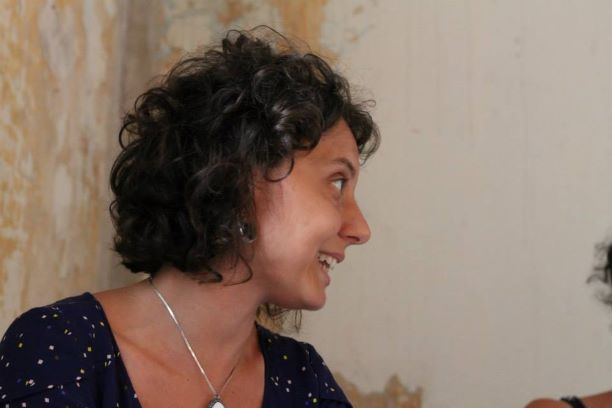
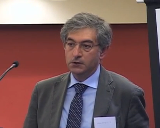
 045 8124930
045 8124930






